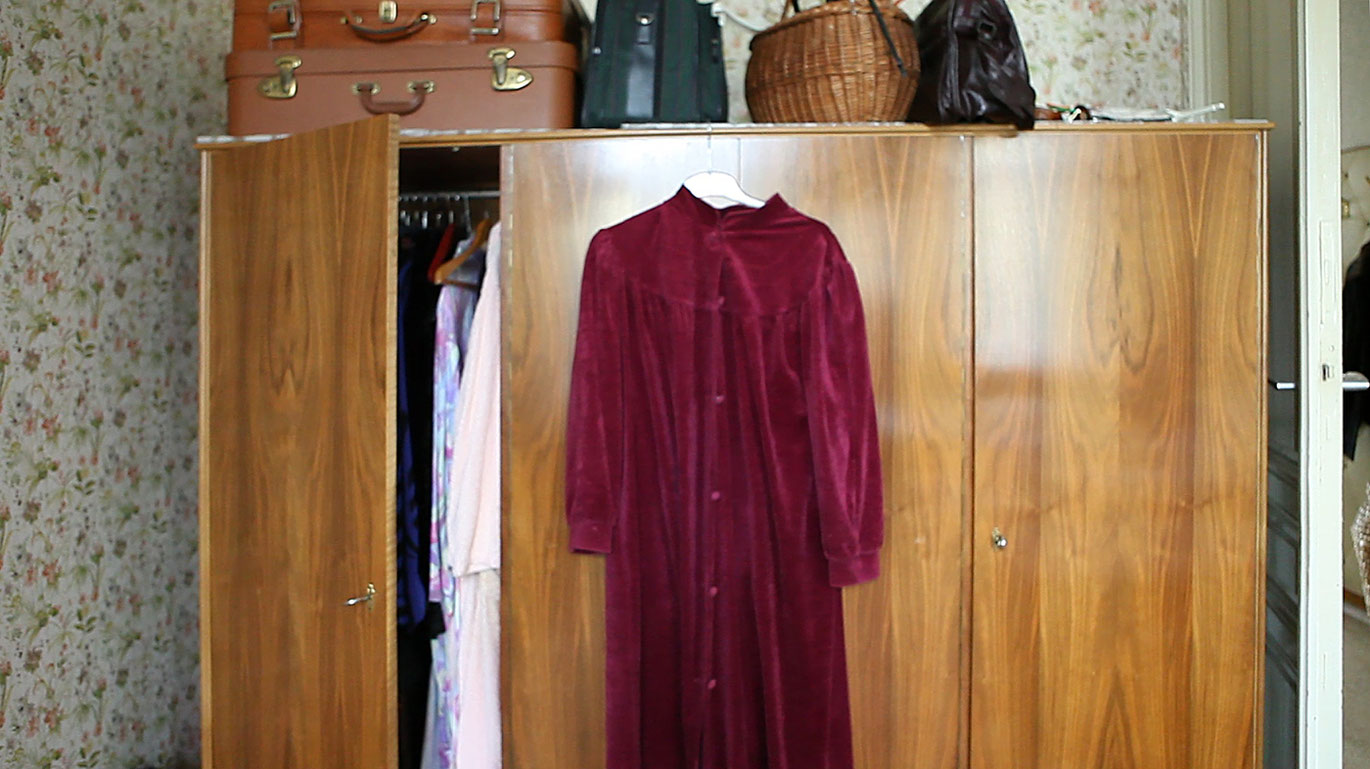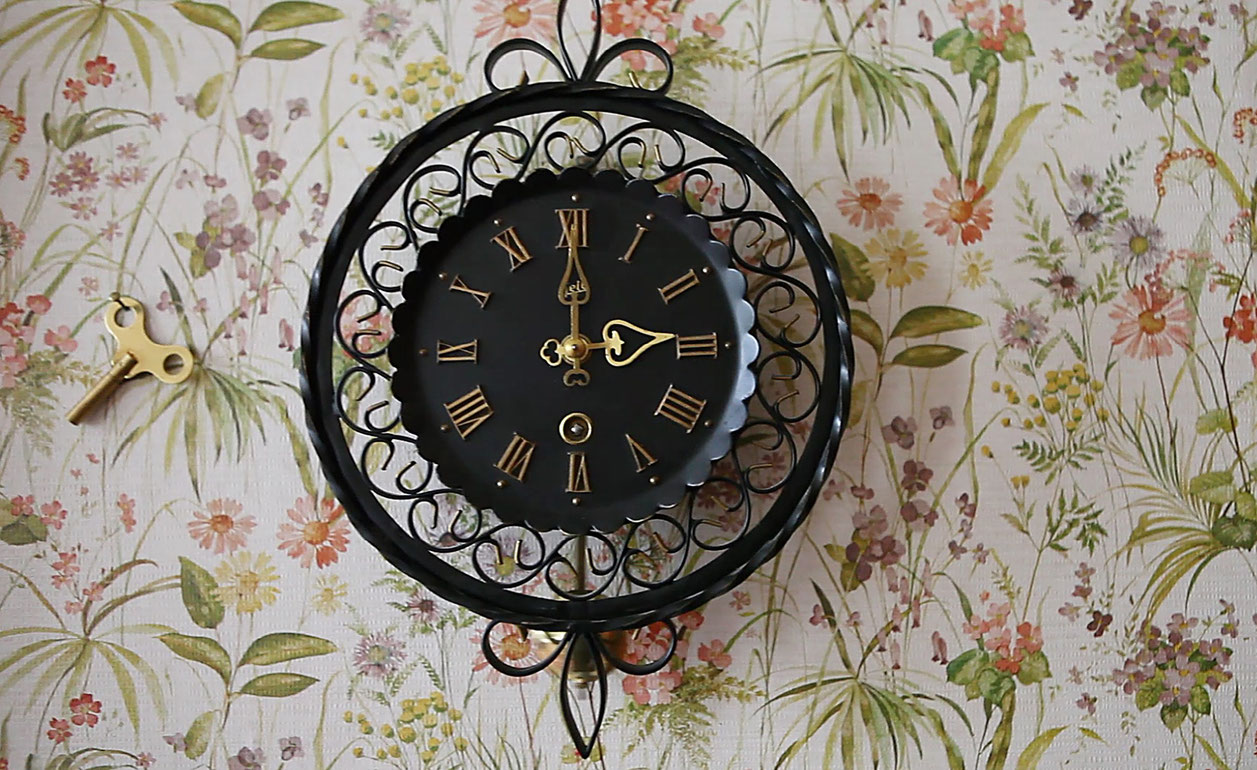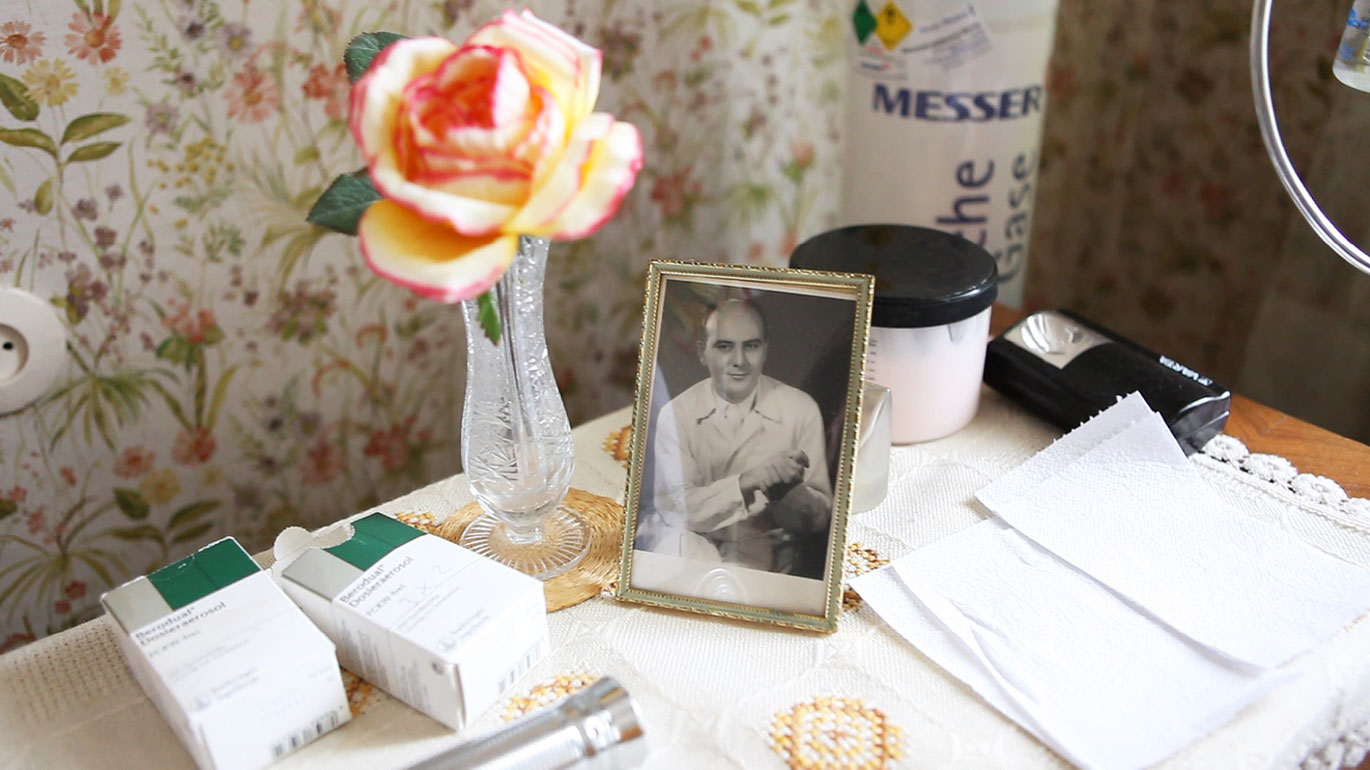FRIEDL
In the final third of FRIEDL we see Viki Kühn reaching into the picture for a clock on the wall. She playfully moves the pendulum back and forth and then begins to move the hand of the same clock half an hour ahead. FRIEDL documents the home of a person who—as a result of illness—is simultaneously present and absent. Time is a measure, that has elapsed, before the film began.
The camera pan begins in the kitchen, where we are already confronted by the medical supplies; we go to the bathroom, from there into the bedroom, and from there again into the living rooms. We see objects, dishes, and medical gas bottles next to the bed; pillows, and furniture, photographs, books, and more photos and pieces of clothing. But the things, themselves, are inanimate and meaningless. Everything is clean, tidy, and inert. When living (according to Ernst Bloch) means leaving traces behind, then we find ourselves here in spaces in which all traces have been frozen in time. Life is holding its breath. The people and animals in the photographs are unknown to us and do not stir any memories. The dressing gown on the cupboard door is an empty mantle, useless, without the person it is meant to cover.
Viki Kühn herself is permanently present, not only behind the camera, as mirror image, and—together with the sick person and her mother—in the parallel soundtrack, but also mainly through her interventions. She lies with her shoes on in bed with the sick person, she intervenes, even manipulates. It is as though she wants to shake things up, to make them move, stir them to life. But every stone that she throws into this lake echoes. There is no narrative and no context other than what the camera shows us and what the sound offers our ears. And every clock follows its own rhythm, shows its own time.
(Sylvia Szely)
Translation: Lisa Rosenblatt
Friedl is an act of collecting, the camera is moving along swiftly, keeping a close eye on the objects it records: a vase, kitchen tools, plastic bags. What do you recognize when you see objects of everyday life? The film reflects on time, on passing and elapsing.
(Stefan Grissemann)
go to interview
FRIEDL
2011
Austria
18 min



